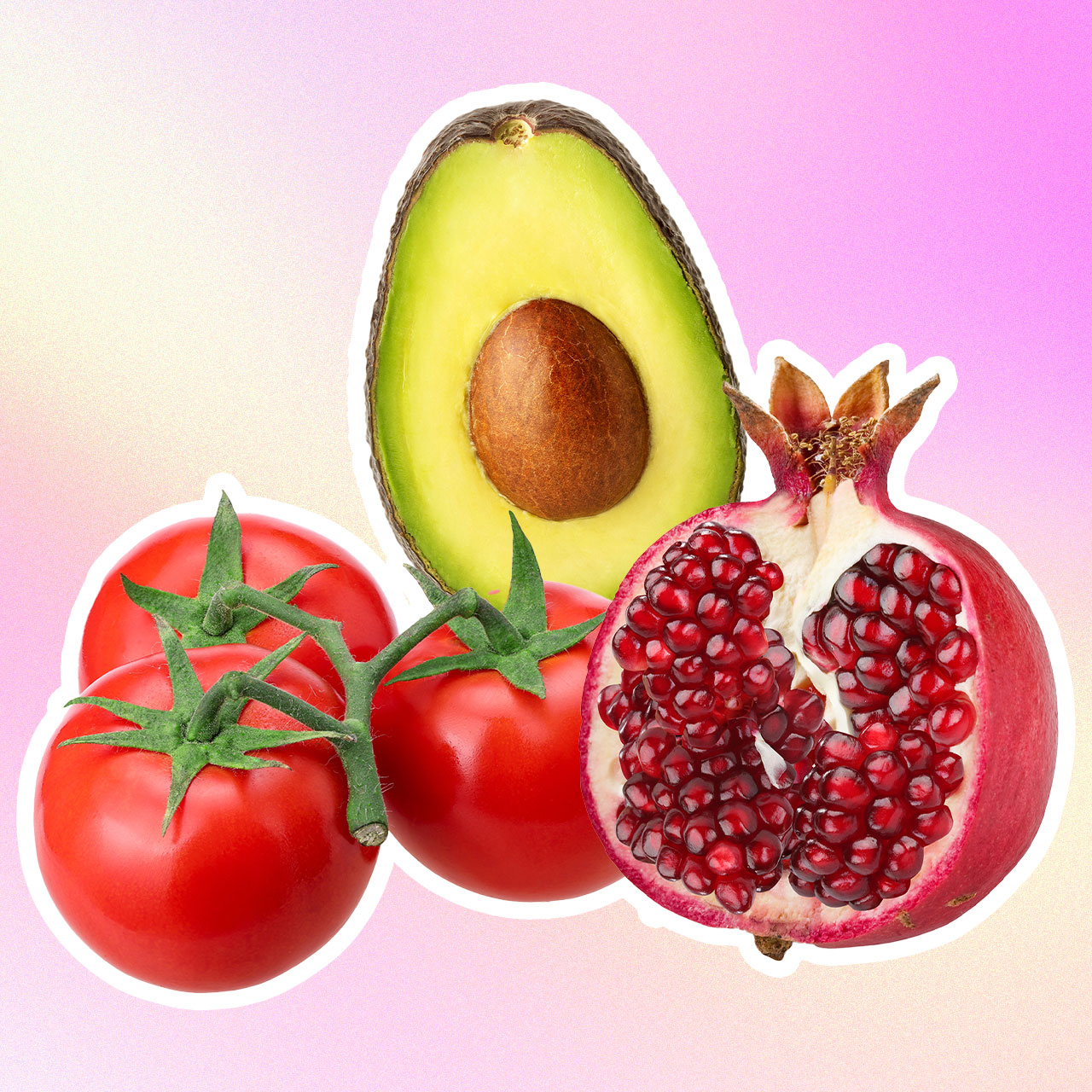The foods that you eat during menopause can help you keep up your energy levels, especially on those days when you feel fatigued and out of energy. They can also help quell some common side effects during this time, and this can include hair loss, thinning, and other physical ramifications of hormonal shifts.
Adding these eight foods to your diet helps you obtain some of the most crucial nutrients for bone health, hair health, skin health, and physical and mental well-being. Add these to your grocery list asap — bonus points for the fact that they are delicious.


Fresh Fruit
When sugar cravings hit, satisfy them with a bowl of fresh fruit. These naturally sweet jewels give you plenty of vitamin C (especially if you opt for citrus fruits and strawberries), which helps boost collagen levels for healthy skin and hair follicles. And berries are the ideal fruit for antioxidants that can fight free radicals and keep your cells healthy.

Mixed Nuts
Mixed nuts are a supremely healthy snack that provides an abundance of vitamins and minerals. A handful of almonds give you healthy fats and vitamin E, which are so important for healthy hair and skin, while walnuts contain a wealth of selenium — a super-vital nutrient for hair growth.

Lentils
Lentils are rich in biotin, protein, folic acid, zinc, and iron — all of the nutrients needed to obtain hair health and optimum overall physical health. You can substitute them for meat if you are keeping a vegetarian or vegan diet and they can be used in so many recipes — from soups to salads.

Salmon
When we think of foods that are solid sources of omega-3 fatty acids for brain health and physical health, salmon is at the top of our list. Incorporating salmon into your diet also supports scalp health, cardiovascular health, and bone health — which is especially important during menopause, when the bones can become weaker and more brittle.

Leafy Greens
Leafy greens are rich in folate, which can help improve your mood — a gift during menopause and perimenopause. Additionally, greens in your salad support your overall health with an abundance of vitamins, minerals, and fiber for better digestion.

Whole Grains
There has been a lot of demonizing talk about whole grains over the last few years, but adding them to your diet can help your digestion because they contain fiber and other nutrients, like B vitamins. As hormones fluctuate, you may experience gastrointestinal discomfort, which whole grains can help soothe.

Red Meat
If you are not vegan or vegetarian and enjoy consuming red meat, there’s some good news: lean red meats can provide essential amounts of iron that help boost your health and your hair health. Try not to overdo it, though: too much red meat can increase your cholesterol — a balance of meat, fish, and plant-based proteins is a good way to go.

Greek Yogurt
Greek yogurt is SO wonderful for your health — and it’s versatile, too. Add berries to it, granola, nuts — use it to whip up a quick dip or sauce for chicken. It contains protein, calcium for healthy bones, and probiotics for optimum gut health.


























